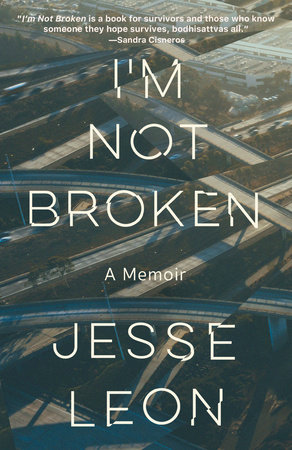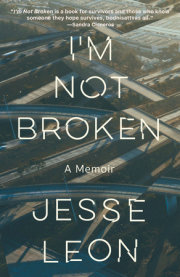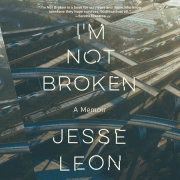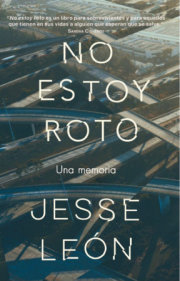Prologue
Espi, as my ama was named at birth, didn’t stay in school past fifth grade in Mexico, where she grew up. She had spent most of her life in the United States working periodically as a nanny, a farm laborer, and a dishwasher. She didn’t even know what Harvard was. But when I was four years old, she made sure to place me in Head Start, an early education program for low-income families, where she volunteered between her two jobs. When I was in elementary school, she was PTA president. She cared so much about our education that she got a part-time job at the school’s cafeteria serving lunch. She became known as the Lunch Mom. During the two hours between her breakfast and lunch shifts, she volunteered at the school, doing whatever she could to make it a better place. She stayed there as I progressed to middle school and high school.
When I was a kid, I never thought twice about the types of jobs my mom worked because so many of my friends’ parents were farmworkers and dishwashers. I was happy when my mom got a job at the school cafeteria, because it made her happy. It gave her, and us, stability. At least, that’s what I overheard her tell the neighbors.
For me, though, that job became a thorn in the side. Every time I’d get into trouble, the teachers or other students would tattle to my mom. And my mom didn’t talk quietly; she talked by yelling. So every time she heard I was up to no good, she would find me in class, pull me hard by the arm, and shout at me to behave. In front of other students and teachers, I would be filled with shame. It felt like my mom always had eyes on me. She was there to pressure me, to make sure I did well in school. I didn’t like Ama yelling at me. Although she never told me this herself, I felt I was making her look bad in front of people, especially the teachers. So I tried my best to not disappoint my mom.
Ama was a healthy, solidly built woman standing at five feet, five inches tall with a round face and glasses. I remember she had wavy black hair that flowed down her back. But at some point, while I was still a young kid, she cut it short for practical reasons. It was too thick to maintain while raising kids and was especially inconvenient when working in kitchens. She was working too much to care for her physical appearance. I’ve never known her to get a manicure or a pedicure. My father, who was fiercely Catholic, never allowed her to wear lipstick, makeup, or nail polish. So she looked like a simple Mexican immigrant with olive skin, big lips and cheeks, and a smile that lit up any room she walked in. As the years passed, she gained weight. She became diabetic and had high blood pressure. But she always maintained her joyful spirit, and she loved making other people happy. Most of all, she was never ashamed of being poor.
When I got accepted to Harvard, I called Ama from my tiny apartment in Berkeley, where I was living at the time, to share the good news. I was giddy with excitement.
“¿Y qué es eso?” she asked.
And what’s that? “¿Ay, mijo, pero por qué Boston? Es muy lejos. Tienen muy buenas universidades aqui en San Diego. Y en las noticias dicen que hace mucho frío allá y te puedes enfermar. ¿Por qué no mejor te regresas a casa y vienes a la escuela acá?”
Immediately my spirits fell. I had disappointed Ama, who had never heard of Harvard or Cambridge. And I was angry at our life’s circumstances. To my mom, Boston was a far-off place at the other end of the country. She hadn’t heard of UC Berkeley, where I did my undergrad, my carrera, either. But she knew it was in California, and close by. She understood what that carrera was. In her mind, a bachelor’s degree was all I needed to be successful in the United States. She reasoned that I simply didn’t want to move back home.
Even though she had little formal education, Ama learned the names of the local colleges and universities because these were the places the teachers she worked with talked about. San Diego State University (SDSU) was the best of the best, and she dreamed that I would attend there. She didn’t realize that there could be better opportunities elsewhere.
“Okay, Mom,” I told her. “Thanks. I love you. I gotta go. I have a class that I need to get to.” I lied just to get off the phone.
“I am super proud of you,” she assured me.
I didn’t doubt her pride in me, but I cried tears of anger and sadness when I hung up the phone. I was angry that we were poor. I was angry that my mom worked so hard and still she didn’t have the luxury of knowing what I knew. I was angry at the injustice of it all.
The day before I was to leave for Harvard, I picked up my mom from work, when the secretary at the elementary school explained to me how Ama finally accepted that I would be leaving. Ama was sitting in the school cafeteria during her break between the breakfast and lunch shifts when the school’s secretary walked in. Ama was wearing her hairnet and a work apron over her usual flower-patterned blouse. She sat on a cold plastic school lunch bench in the middle of the cold, drab concrete room. She was crying, all alone, with her head between her hands. Shocked, the secretary asked my mom, “Espi, why are you crying? Are you okay?”
“Mi hijo. Primero lo perdí a las drogas. Luego se me fue para Berkeley. Y ahora se me va a una escuela en Boston que se llama
Harr-varrd. Por qué no regresa aqui a estudiar para estar cerca a la familia? Aquí esta la major Universidad en San Diego.” Ama pleaded in Spanish. Why didn’t I come home and go to school close to my family? The best university was here in San Diego!
The secretary hugged Ama while she sobbed and asked her, “What school did you just say your son is going to?”
“Se llama
Harr-varrd. En Boston. Solo Dios sabe donde queda Boston. Me dicen que esta muy lejos hasta allá cerca de Nueva York. ¿Usted se imagina? ¡Nueva York!”
The secretary held her by the shoulders, looked at her tear-covered face and directly into her eyes, and said, “Are you kidding? It’s Harvard?”
She then went directly to the teacher’s lounge and wrote on the board:
Please congratulate Espi. Her son just got accepted to Harvard!And so everyone did. Teacher after teacher, and even the principal, came by to congratulate Ama that day. Her tears of sadness turned into tears of joy. She looked up to these teachers, and she finally began to understand that Harvard was one of the best and most prestigious schools in the world. And her son, who she had sacrificed so much for, was going to be attending Harvard.
Copyright © 2022 by Jesse Leon. All rights reserved. No part of this excerpt may be reproduced or reprinted without permission in writing from the publisher.











